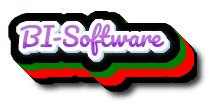In today’s fast-paced business environment, customer relationship management (CRM) software has become an essential tool for companies to manage their interactions with customers, prospects, and clients. Traditional CRM software has been the norm for many years, but with the rise of digital transformation and the need for more flexible and cost-effective solutions, alternatives to traditional CRM software have emerged. In this article, we will explore these alternatives, their features, and benefits, as well as provide a comprehensive review of the market.
<img src=”https://gdm-catalog-fmapi-prod.imgix.net/ProductScreenshot/e68adf9f-195b-4131-9f12-616adbd4502e.png?ixlib=rb-1.0.0u0026ch=Width%2CDPRu0026auto=formatu0026fit=crop” alt=”Alternatives to Traditional CRM Software: A Comprehensive Review” />
What is Traditional CRM Software?
Traditional CRM software is a type of software that helps businesses manage their customer relationships by storing and analyzing customer data, tracking interactions, and automating sales, marketing, and customer service processes. Some of the key features of traditional CRM software include contact management, sales forecasting, lead management, and customer service ticketing. Examples of traditional CRM software include Salesforce, Microsoft Dynamics, and Oracle CRM.
Limitations of Traditional CRM Software
While traditional CRM software has been widely adopted, it has several limitations. Some of the common limitations include:
- High costs: Traditional CRM software can be expensive, especially for small and medium-sized businesses.
- Complexity: Traditional CRM software can be complex to implement and use, requiring significant training and support.
- Limited flexibility: Traditional CRM software can be inflexible, making it difficult to customize and adapt to changing business needs.
- Data silos: Traditional CRM software can create data silos, making it difficult to integrate with other business systems and tools.
Alternatives to Traditional CRM Software
In recent years, several alternatives to traditional CRM software have emerged, including:
- Cloud-based CRM: Cloud-based CRM software is a type of CRM software that is hosted in the cloud, rather than on-premise. Examples of cloud-based CRM software include HubSpot CRM, Zoho CRM, and Freshsales.
- Open-source CRM: Open-source CRM software is a type of CRM software that is free to use and customize. Examples of open-source CRM software include SuiteCRM, Vtiger, and SugarCRM.
- Low-code CRM: Low-code CRM software is a type of CRM software that allows users to create custom applications without extensive coding knowledge. Examples of low-code CRM software include Airtable, Podio, and QuickBase.
- Mobile CRM: Mobile CRM software is a type of CRM software that is designed for use on mobile devices. Examples of mobile CRM software include Salesforce1, Microsoft Dynamics 365, and SAP CRM.
Features and Benefits of Alternative CRM Software
Alternative CRM software offers several features and benefits, including:
- Cost-effectiveness: Alternative CRM software can be more cost-effective than traditional CRM software, with lower upfront costs and subscription-based pricing models.
- Ease of use: Alternative CRM software can be easier to use than traditional CRM software, with intuitive interfaces and minimal training required.
- Flexibility: Alternative CRM software can be more flexible than traditional CRM software, with customizable workflows and integration with other business systems and tools.
- Scalability: Alternative CRM software can be more scalable than traditional CRM software, with the ability to easily add or remove users and features as needed.
Comparison of Alternative CRM Software
The following table compares some of the key features and benefits of alternative CRM software:
| Software | Cost | Ease of use | Flexibility | Scalability |
|---|---|---|---|---|
| HubSpot CRM | Free – $50/user/month | Easy | High | High |
| Zoho CRM | $12 – $35/user/month | Easy | Medium | Medium |
| Freshsales | $12 – $49/user/month | Easy | High | High |
| SuiteCRM | Free | Medium | High | Medium |
| Vtiger | $10 – $30/user/month | Medium | Medium | Medium |
| Airtable | $12 – $24/user/month | Easy | High | High |
| Podio | $9 – $24/user/month | Easy | High | High |
| QuickBase | $15 – $30/user/month | Easy | High | High |
FAQ
- What is the difference between traditional CRM software and alternative CRM software?
Alternative CRM software is designed to be more cost-effective, easier to use, and more flexible than traditional CRM software. - What are the benefits of using alternative CRM software?
The benefits of using alternative CRM software include lower costs, ease of use, flexibility, and scalability. - Which type of alternative CRM software is best for my business?
The best type of alternative CRM software for your business will depend on your specific needs and requirements. Consider factors such as cost, ease of use, flexibility, and scalability when making your decision. - Can I customize alternative CRM software to meet my business needs?
Yes, many alternative CRM software solutions offer customization options, including workflow automation, custom fields, and integration with other business systems and tools. - Is alternative CRM software secure?
Yes, alternative CRM software is designed to be secure, with features such as data encryption, access controls, and regular backups.
Conclusion
In conclusion, alternative CRM software offers a range of benefits, including cost-effectiveness, ease of use, flexibility, and scalability. With so many options available, it’s essential to carefully evaluate your business needs and requirements before making a decision. Consider factors such as cost, ease of use, flexibility, and scalability, and don’t be afraid to ask questions and seek advice from experts. By choosing the right alternative CRM software for your business, you can improve customer relationships, increase sales, and drive business growth. Whether you’re a small business or a large enterprise, alternative CRM software is definitely worth considering.
<h2>Closure</h2>
Thus, we hope this article has provided valuable insights into Alternatives to Traditional CRM Software: A Comprehensive Review. We hope you find this article informative and beneficial. See you in our next article!
